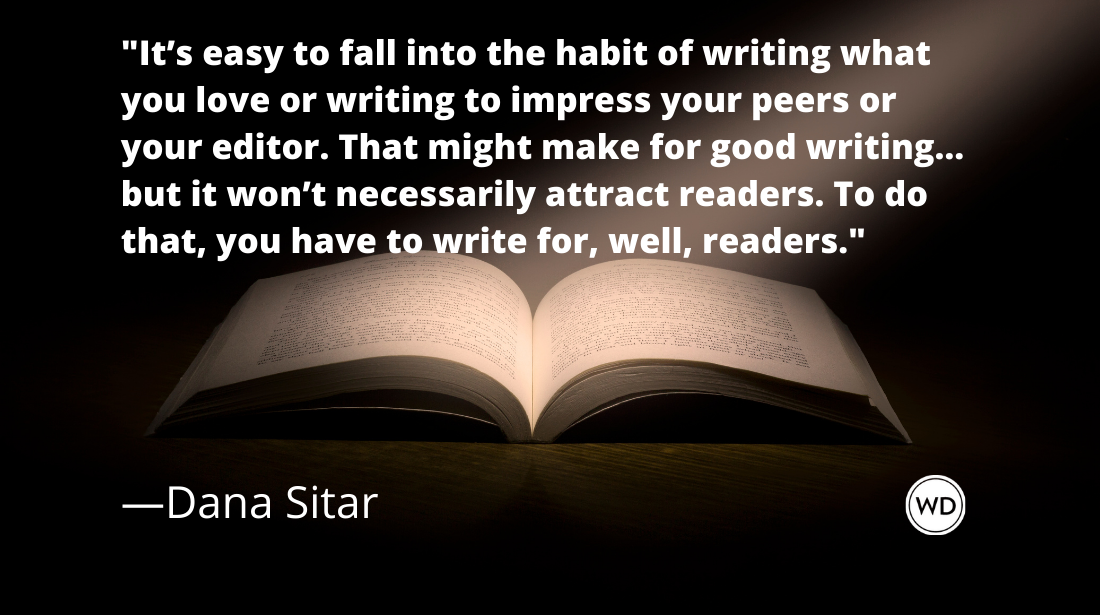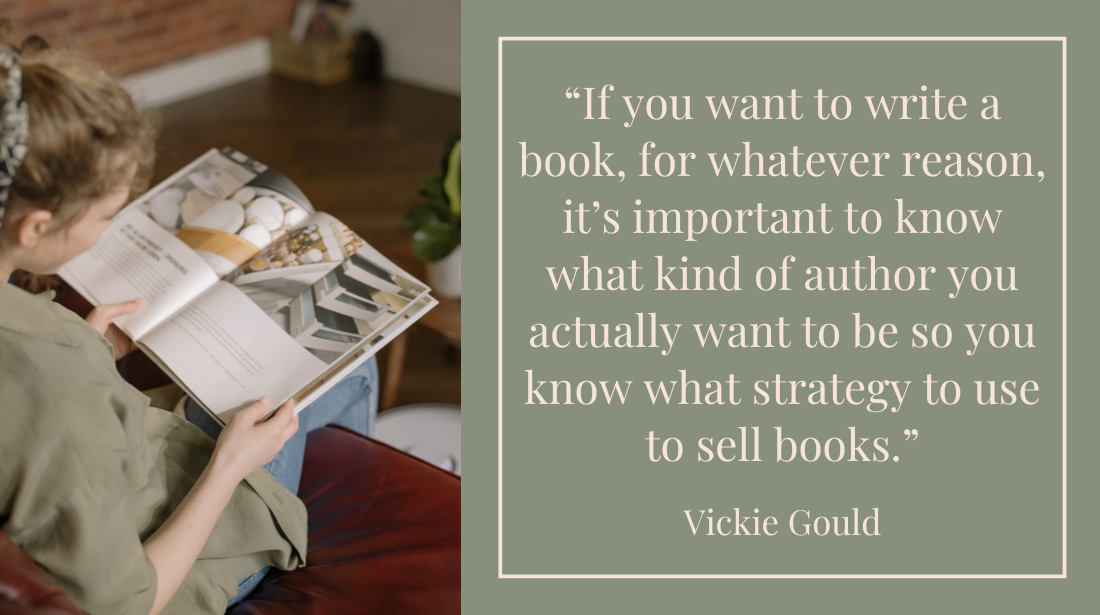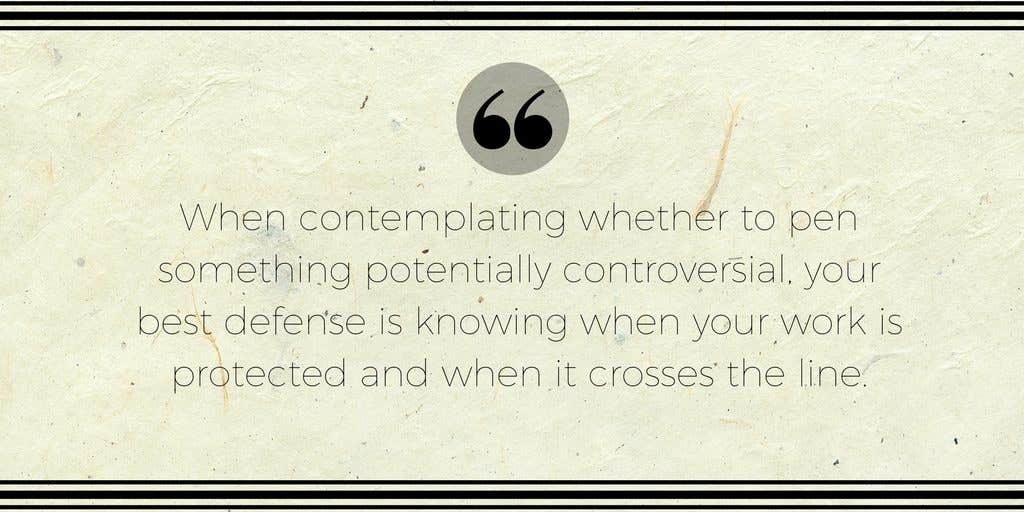Keep the Commission
Do you really need an agent? Here’s one writer’s irreverent guide to flying solo.
Joe, an out-of-work writer, has just arrived home from a frustrating day interviewing for writing gigs in New York. As he emerges from his beat-up old Ford Pinto, he sees his roommate running toward him down the driveway, frantically waving his arms in the air and breathlessly yelling at him. "Joe, your agent just called to say that your girlfriend has broken up with you and to warn you that if you don't pay back the loan on those gambling bets, thugs are gonna burn down your house!"
Joe stands motionless in the middle of his driveway. Completely stunned by what his roommate has just told him, he gazes at him in utter disbelief and says, "You've got to be kidding me. My agent called?"
If I were an English professor, I'd teach a mandatory course called "How to Be Your Own Agent." It would be my top priority—before quoting the mystical chutzpa of William Shakespeare or analyzing the sexual subtext of the "The Wife of Bath" in The Canterbury Tales. I'd take my doe-eyed freshman wanna-be-writers and slap them up the side of their heads with a little hard-earned reality check about becoming an honest-to-God published writer. If you're an English-lit major or even a modern-day Sylvia Plath, you must get your act together if you're going to make it as a published writer.
It used to be different. Dorothy Parker could drink herself blind, and Anais Nin could lie in bed all day and talk dirty to herself. Writers were once looked upon by society with a special sympathetic envy. It was almost a national sport to watch imaginative and glib, yet self-hating artists squander away their talents on a bevy of superficial conversations, cheap floozies and gin.
Today, we call that speed dating.
But back to my point: Writers must understand that neither angst nor talent have anything to do with getting published. Carve these letters—P L A T F O R M—onto your forehead. OK, there, I've said the dirty eight-letter word that has cursed all literary artists into the same marketing realm as Dr. Phil and Carrot Top. But here's the sobering truth about becoming a published writer: If you can't prove to a potential book agent or a publisher that you already have an adoring book-buying audience totally committed to supporting your greatness, "So long sucker" is all you're going to hear. With the writer-to-agent rejection rate at something like 98 percent, chances are, all of your artistic genius is going to wind up on the bottom of some receptionist's birdcage.
The good news is that with more than 5,000 small publishers (see "Small-Press Markets" at right), yet-to-be published writers have more options than they did in the past. Today, authors can query small presses and have their work seriously considered for publication. Face it: Large publishing houses accept manuscripts submitted by large, influential agents. If you're an unknown, then you have to work your way up like the rest of us. Getting published operates under the same principle as "getting into college is harder than staying in college." How you present your work is sometimes more important than the work itself. If you want a small press to publish your latest version of Mommy Dearest, then follow this advice:
• RESEARCH ALL THE INDEPENDENT PUBLISHERS OF YOUR GENRE. Don't know what your genre is? You'll define that by reading the websites of countless small publishers. If you meet their submission criteria, then move forward with gusto.
• WRITE A KILLER COVER LETTER that establishes you as a moneymaking, media-grabbing wild stallion—and a writer with plenty of pluck and spunk to get out there and sell some books. Writing your cover letter should take you almost as long as writing your manuscript. Hone it. Make it tight and terse. And remember: If you want to be a writer, you can always be unique. But make sure you look good for your author's picture. I know what you're thinking. It's sick, but you must know how to move your books, or else you'll be parking cars at a rent-a-car place with the rest of your graduating class.
• WRITE A TEAR-JERKER OF A SYNOPSIS, filled with pathos and drama, but keep it short because nobody reads these days—especially editors. Keep your synopsis to two paragraphs at most and then wrap it up.
• FOLLOW PUBLISHERS' INDIVIDUAL SUBMISSION GUIDELINES. This is key. Publishers have set up submission guidelines to weed out any and all malcontents and revolutionaries. Read their guidelines with care and do what they say or it's off to the trash can with you.
• NEVER QUIT. I don't care if you're living in Central Park in your little sister's Hello Kitty pup tent. Never quit. Get yourself some emotional maturity, and if publishers tell you that your manuscript sucks, take notes. When you finally become a published writer, editors will tell you constantly that your work sucks and that you should go ahead and get your real-estate license because what little talent you once had is all tapped out. Trust me: Editors do sometimes know what they're talking about. And if you happen to be unfortunate enough to be dealing with some who don't know what they're talking about, pretend you're listening. Make them feel like they have the power to crush out any remaining vestiges of your original storyline. As long as you let them think it's their idea, you have a four-book deal. And remember—they may well make less money than you do—and they can't go to work in their pajamas.
• ANY CHANCE YOU GET TO WRITE, DO IT. Even if there's little to no pay, get yourself out there as much as possible.
There are two classes of people who are honestly crazy: people who think they're qualified to be president of the United States and people who think they should be writers. But with writing, the road you travel leaves you walking upon the same path as saints—leaving your mark on humanity in a way that keeps you eternally overanalyzing, full of many (and maybe even a few brilliant) useless observations and eternally searching for an audience who sees your charms. And who's better than you at selling those charms?









